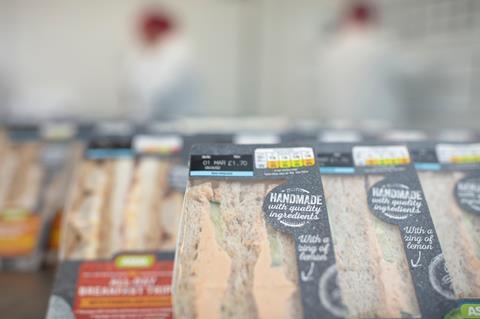
Top story
Food to go specialist Greencore has returned to profit as revenues recovered due to the relaxation of Covid restrictions.
In the year to 24 September Greencore’s revenues increased by 4.8% to £1.3bn, with sales up 6.2% on an organic basis adjusted for foreign exchange movement and the disposal of its molasses business.
The revenue growth meant group profit before tax bounced back to £27.8m compared to a loss before tax of £10.8m in 2020.
The recovery came despite the UK trading environment remaining “volatile” during the year.
Greencore said there was a “pronounced negative impact on demand” in food to go categories in the first half of the year, arising from a reduction in mobility due to extensive lockdowns and tiered restrictions across the UK.
In addition to the underlying market recovery, the business benefitted from its strong market position in the grocery retail channel, its customer and format mix, and its portfolio across food to go and other convenience categories.
Food to go revenues increased by 9% to £842.1m driven by a recovery in underlying demand as the year progressed and by strong execution on new business wins.
Organic growth in food to go was 59% in the second half and only 5% below the equivalent pre-Covid level of 2019.
In September 2021, the final month of the Group’s fiscal year, pro forma revenue in food to go categories increased by approximately 40% year on year and was only approximately 1% below the equivalent pre-COVID levels.
Greencore’s other convenience categories, comprising of chilled ready meals, chilled soups and sauces, chilled quiche, ambient sauces and pickles, and frozen Yorkshire Pudding categories, saw revenues decrease by 1.9% to £482.7m.
Performance was boosted by new business wins representing annualised pre-COVID revenues of approximately £175m, across food to go and other convenience categories and customers.
Overall, group operating profit increased from £12.9m to £42.8m driven primarily by an improvement in profitability in the Group’s food to go categories, as demand recovered in the second half of the yea
Greencore said inflation trends in the group’s main UK cost components were broadly as anticipated, with raw material and packaging costs rising by approximately 1% and direct labour inflation approximately 5%.
Greencore incurred £5.3m of operating costs relating to COVID-19 compared to £10.8m in the previous year, while it received UK Government assistance of £8.7m (down from £21.3m last year) under the Coronavirus Job Retention Scheme.
CEO Patrick Coveney commented: “Greencore has weathered the storm and emerged strongly from a difficult period. Following a challenging first half in FY21, we made good progress in rebuilding revenues, cashflows and profitability in H2 and are confident of maintaining this positive trajectory in the year ahead, particularly in the seasonally important second half.
“The strong recovery of the UK food to go market, as well as solid performance in other convenience food categories, underpins this confidence. New business wins achieved last year are contributing to our momentum, and we anticipate delivery of profits for the year ahead in line with current market expectations.
“With strong free cashflow and a significant reduction in leverage achieved in FY21, the Group enters the new financial year on a robust financial footing. Greencore has a strong position in the dynamic UK convenience food market and, with demand remaining strong in the early stages of FY22, has confidence in its medium-term prospects.”
Greencore shares are up 0.8% to 124.1p so far this morning.
Morning update
Ingredients supplier Treatt bounced back to revenue and profit growth after a boom in canned cocktails boosted growth.
Revenue for the year from continuing operations increased by 14% to £124.3m, with sales up 17.7% at constant currency as sterling strenghtened against the dollar.
Across non-citrus categories, revenue grew by 29.4% driven by the 64.1% growth in its healthier living categories of tea, health & wellness and fruit & vegetables.
Its tea category led the way with growth of 113.1% as a result of significant new business wins across a range of alcoholic and non-alcoholic beverages, in particular new wins in the ready-to-drink canned cocktail market.
Its tea category was impacted in the prior year by the effective closure, due to COVID-19, of some significant on-trade channels, meaning a proportion of the growth in this year related to the return of business which had been temporarily paused due to the pandemic.
Health & wellness (which includes sugar reduction) had another very strong year with revenue growth of 28.7% driven by increased demand from brand owners to reduce the sugar content in their beverages.
Fruit & vegetables category had one of its strongest years to date, with passion fruit, watermelon, cucumber and mango natural extracts the leading contributors to growth of 59.6%.
Citrus remained the Group’s largest product category representing 43.6% of group sales, with revenue falling by 1.2% due to the timing of deliveries and contract mix with some large customers.
The UK, mainland Europe and The Americas performed strongly with no discernible impact from Brexit or the well-documented global supply chain issues.
Revenue growth in the higher margin healthier living categories coupled with improved margins in the citrus category drove a 41.3% increase in profit before tax and exceptional items to £20.9m.
Pre tax profits were up 42.8% to £19.6m.
The year also saw continued significant investment of £14.4m in capital projects, including £9.5m on a new UK Headquarters
CEO Daemmon Reeve said: “We are very proud to be reporting record full year results for Treatt against all of our key metrics. It has been a remarkable performance in a year when we have been dealing with the continued impact of the COVID-19 pandemic and volatility in market conditions. We have managed to deliver really strong profit growth across multiple categories, particularly through aligning with consumer beverage trends and the wide demand for healthier, natural products. This has all happened while continuing to invest in the future growth potential of the business.
“This strong performance is testament to the efforts of everyone at Treatt, who I would like to thank.
“We are making the right investments at the right time on our growth journey. I have no doubt that the combined effect of increasing our investment in R&D, realising the multitude of benefits from the new UK headquarters and strengthening our team will elevate Treatt to a new level with further sustained benefits to all of our stakeholders.”
Pub group Marston’s saw a 48% drop in revenues for the year to 2 October as results were significantly impacted for a second year by the COVID-19 pandemic, with severe disruption to trading during the year as a direct result.
Its pubs were open for only 54% of the total trading days in the period ended 2 October 2021 and when they were permitted to open, they were mandated to operate under significant trading restrictions due to the Government’s response to the pandemic.
Total revenues fell 48% to £424m, with total pub revneues down 22% to £402m as the previous year including a month of revenues from its brewing business that was spun into a JV with Carlsberg.
Since re-opening on 12 April, the business saw an improving sales trend from 77% of 2019 levels on a like for like basis, during the period of outdoor trading only to a return to growth over 2019 levels, with sales 2% higher across managed and franchised pubs from July.
Overall, trading since 12 April has been at 94% of 2019 levels which includes the benefit of the temporary VAT reduction on food and non-alcoholic drink sales.
However, the financial consequences of significant disruption caused by the pandemic during the period are reflected in significantly reduced profit.
Underlying EBITDA was down to £35.3m from £125.6m and the total underlying operating loss was £7.4m compared to a £74m profit. The total underlying loss before tax was £100m, down from a £22m profit last year.
CEO Andrew Andrea commented: “It is extremely encouraging that trading momentum has built well since reopening and trading is now exceeding FY2019 levels. We were delighted to fully reopen our estate in July, once restrictions were lifted, and welcome our guests and team members back into our pubs. Whilst there are still some challenges to navigate over the months ahead, we believe the worst of the pandemic is now behind us and Marston’s has emerged a stronger, more focused business which is in great shape. Importantly, consumer demand for the pub and the role which this great British institution plays, at the heart of communities up and down the country, has never been stronger.
“Marston’s enters the year ahead as a focused pub business with a clear strategic plan, a profitable and cash generative business, a strong balance sheet and a 40% share in CMBC, our partnership with Carlsberg, which has such exciting potential. Our debt reduction plans remain on track and our well-invested, predominantly freehold, suburban pub estate is well placed to benefit from many of the positive consumer dynamics and drivers post pandemic. Whilst still early days, Christmas bookings look encouraging and we look to the future with renewed optimism.”
On the markets this morning, the FTSE 100 has opened down 1.3% to 7,018.2pts undoing yesterday’s gains.
Risers include Nichols, up 2.4% to 1,341.5p, Ocado, up 1.2% to 1,856.6p and Pets at Home, up 1% to 469.8p.
Fallers include C&C Group, down 2.6% to 223.4p, WH Smith, down 2.6% to 1,338p, Sainsbury’s, down 2.6% to 282.3p and Naked Wines, down 2.1% to 640p.
Yesterday in the City
The FTSE 100 stabilised yesterday after significant market falls on Friday due to renewed concerns about Covid, with the index closing up 0.9% to 7,110pts on Monday.
AG Barr was one of the market’s stand-out performers, jumping 13% to 529p after lifting its profit expectations for the year in an unscheduled trading update.
The day saw some of Friday’s fallers bounce back, including WH Smith, up 5.5% to 1,383.5p, Compass Group, up 4.7% to 1,522p, C&C Group, up 2.4% to 229.4p, SSP Group, up 2.1% to 220.6p, Greencore, up 2.1% to 123.1p and FeverTree, up 1.8% to 2,648p.
Fallers include Glanbia, down 4.2% to €11.50, Just Eat Takeaway.com, down 3.1% to 4,931p, PayPoint, down 2.9% to 614p, Pets at Home, down 2.7% to 465,4p, THG, down 1.8% to 184p and Sainsbury’s, down 1.3% to 289.7p.







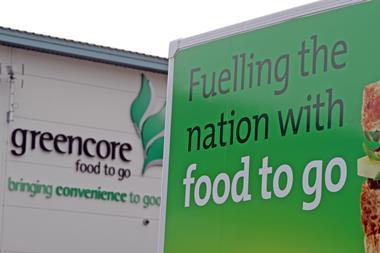
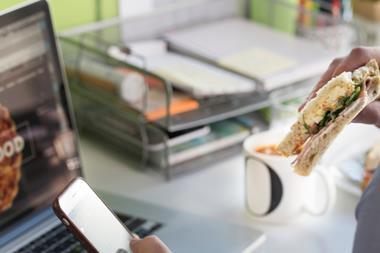
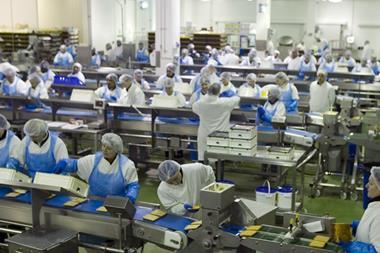

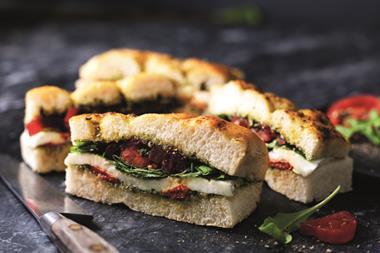
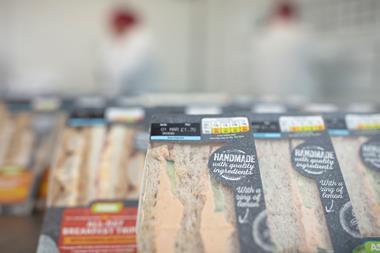






No comments yet